Scandals, takeovers: A year to remember

Taylor Swift became the world’s biggest pop star in 2024, with an estimated $US1.6bn fortune. Pic via Getty Images
As we prepare to ring in 2025, here’s a look at the highs and lows of what proved an eventful 2024.
January
Barely a week into the new year and stevedoring firm DP World Australia’s protracted industrial battle with the Maritime Union of Australia was grabbing headlines and threatening to inflict major economic pain. While the dispute over wages and rostering began in 2023, it kicked up a notch in January amid reports a massive backlog of containers was costing the economy $84m a week. By February a settlement had been reached.
The biggest scandal of the month belonged to ASX-listed Worley after The Australian revealed an international tribunal had found the contracting giant had engaged in “conduct amounting to corruption” in Ecuador more than a decade earlier. The board and management spent the start of the year in damage control, and chair John Grill was still reassuring investors at November’s AGM that “Worley didn’t breach any corruption or bribery laws”. Worley shares slumped almost 25 per cent over the year.
The closure of the Savannah Nickel Project in Western Australia, costing 140 jobs, following the appointment of administrators to Panoramic Resources was a sign of the heartache to come in the battery metals sector as plunging prices due to a global glut made mining unviable. The closure and mothballing of nickel projects came thick and fast, reaching a peak in July with BHP’s decision to pull the plug on its Nickel West operations, affecting 1600 workers.
Santos’s $US3.6bn Barossa Gas Project off Darwin in the Timor Sea had a win when the federal court dismissed a legal challenge brought by the Environmental Defenders Office on behalf of Tiwi Island traditional owners. The court criticised the EDO’s conduct, leading to an order for the EDO to pay Santos more than $9m in legal costs. Production is expected to start in 2025.
February
CEOs had good reason to look over their shoulders in February as some high-profile execs were shown the door. Virgin Australia began a global search for a new boss following the shock news that Jayne Hrdlicka had been dumped amid friction with the airline’s private equity owner, Bain Capital. “I am starting the process of retiring as your CEO,” she told staff at the time, and almost 12 months later she is still in the role. Her pending exit torpedoed plans for the airline to relist on the ASX this year.
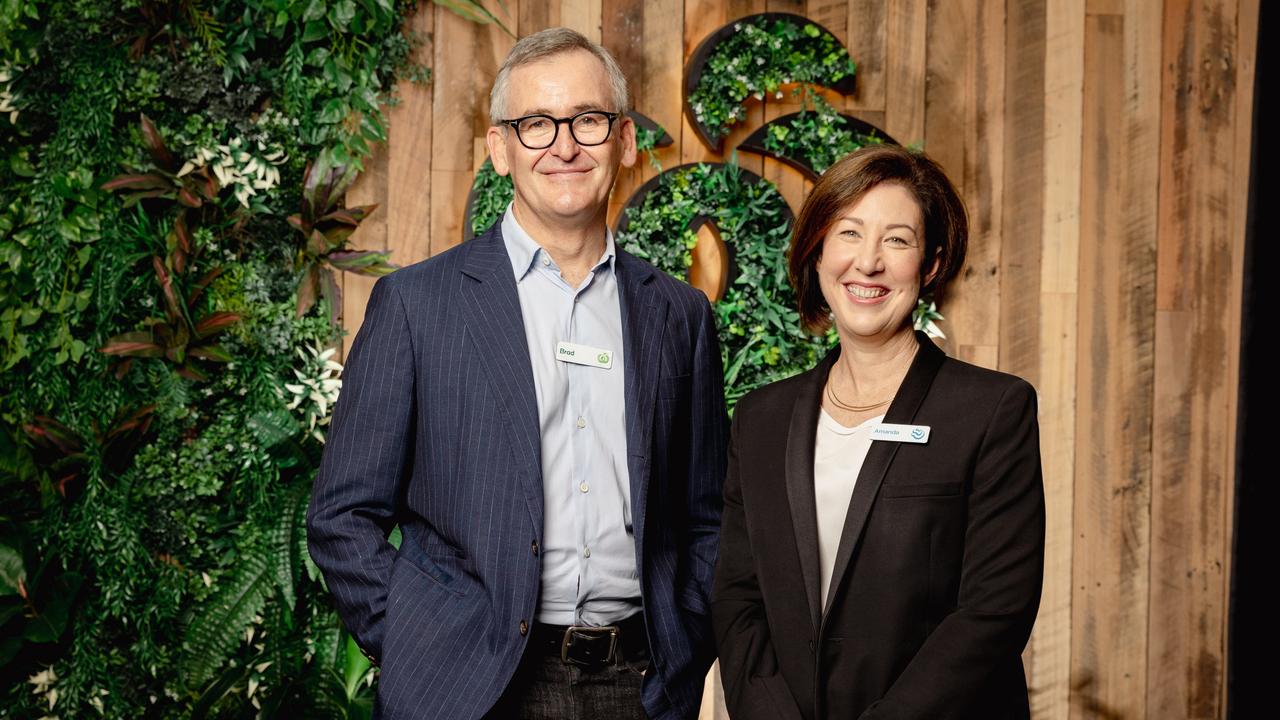
Woolworths denied that CEO Brad Banducci was forced out prematurely following a spate of missteps when it announced he would be replaced, in September, by low-profile executive Amanda Bardwell. Woolies and rival Coles have never been out of the headlines in 2024, with both having to defend themselves against accusations of price gouging and market manipulation. Their execs appeared before an at-times fiery Senate inquiry in April and in September the Australian Competition & Consumer Commission launched a blockbuster “misleading” discount price lawsuit against the pair.
National Australia Bank’s leadership transition was less messy, with Andrew Irvine named as the new CEO, replacing Ross McEwan in April.

Commonwealth Bank chief Matt Comyn was the only one of the big four bank bosses to survive the year. Anthony Miller succeeded Peter King at Westpac in mid December and a week earlier ANZ announced that Nuno Matos would take over from veteran Shayne Elliott in July 2025.
On a lighter note, we all learned about “Swiftenomics”, when global pop juggernaut Taylor Swift swept through Sydney and Melbourne with seven sold-out concerts. According to NAB’s estimates, the dosh outlayed by diehard fans on tickets, hotels, airfares, hospitality and even friendship bracelets helped generate more than $300m for the economy. And it helped make Swift the world’s biggest pop star with an estimated $US1.6bn fortune.
March
“Tech tyrant goes to war with Australia”, The Australian’s headline blasted after Mark Zuckerberg’s Meta, parent company of Facebook, decided to cease paying news publishers upwards of $250m for content for its social media platforms. News Corp Australasia executive chairman Michael Miller warned that the decision would have a catastrophic flow-on effect on most industries. In another blow for Meta, Fortescue’s Andrew Forrest launched legal action in California against Meta over scams and fraudulent advertising on its platforms.
Meanwhile, job security remained precarious in the CEO ranks. Tabcorp boss Adam Rytenskild resigned for “using inappropriate and offensive language” in the workplace – allegedly referring to Victoria’s top gambling regulator as a “useless c..t”. Former AFL boss Gillon McLachlan was handed the CEO reins in June.
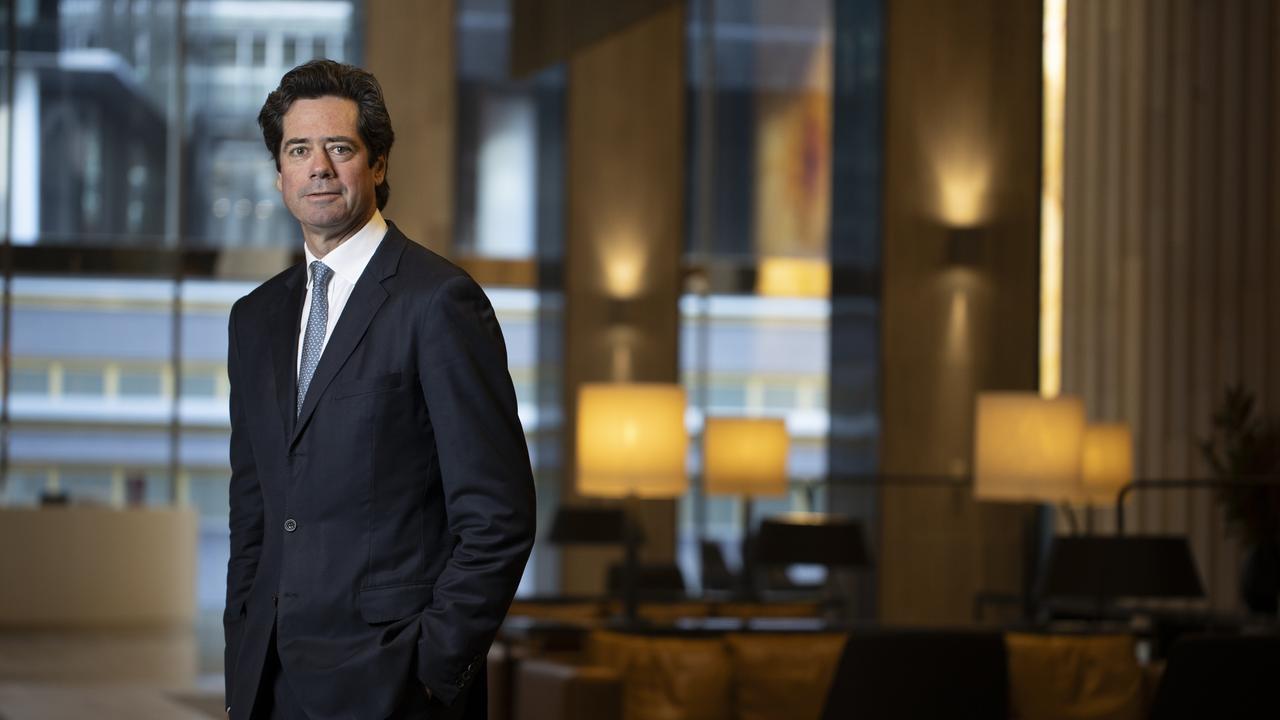
Star Entertainment lurched to a fresh crisis with the sudden departure of CEO Robbie Cooke, a month after the NSW Independent Casino Commission announced a second inquiry into the company’s suitability to operate its Sydney casino. He was replaced in June by former Crown Resorts boss Steve McCann. The cards fell in Crown’s favour in March, with the company allowed to retain its Melbourne casino licence.
Myer shocked the business community when it announced that current CEO John King would leave in June, to be replaced by former Qantas loyalty scheme boss Olivia Wirth as executive chair, despite her having no direct retail experience. In October she helped orchestrate a potentially company-making deal with Solomon Lew’s Premier Investments. Shareholders of both companies will vote in January on whether Premier should offload its Apparel Brands, which includes Just Jeans and Jaqui E, to Myer in return for about $860m in shares. If approved, Lew will emerge as Myer’s largest shareholder and be invited to join the retailer’s board.
Corks popped when China lifted crippling tariffs on Australian wine on March 29, ending more than three years of punitive measures that had severely affected wine exports. “It’s been a long, very tough three years,” said Mitchell Taylor of Taylors Wines.
April
One of the biggest ongoing business stories of the year became public in April, when Super Retail launched a pre-emptive attack on a $30m-$50m legal claim from two executives it claimed was designed to “shake down” the company. The case accused CEO Anthony Heraghty and former HR boss Jane Kelly of having a clandestine relationship and creating a toxic work environment. The two main whistleblowers were revealed as Rebecca Farrell and Amelia Berczelly, both former senior executives at the company. In December, the Federal Court dismissed a claim by Farrell, the company’s former chief legal officer, who alleged that Super Retail failed to honour a settlement agreement. The main case is scheduled for trial in mid-2025. The Australian Securities and Investments Commission is also investigating Super Retail’s handling of the whistleblower complaints.
It was also an action-packed month for BHP, which launched what it hoped would be the biggest resources deal of the year. But the Australian mining giant’s proposed £31bn ($62bn) takeover of Anglo American was unanimously rejected by the target’s board, which deemed it “highly unattractive”.
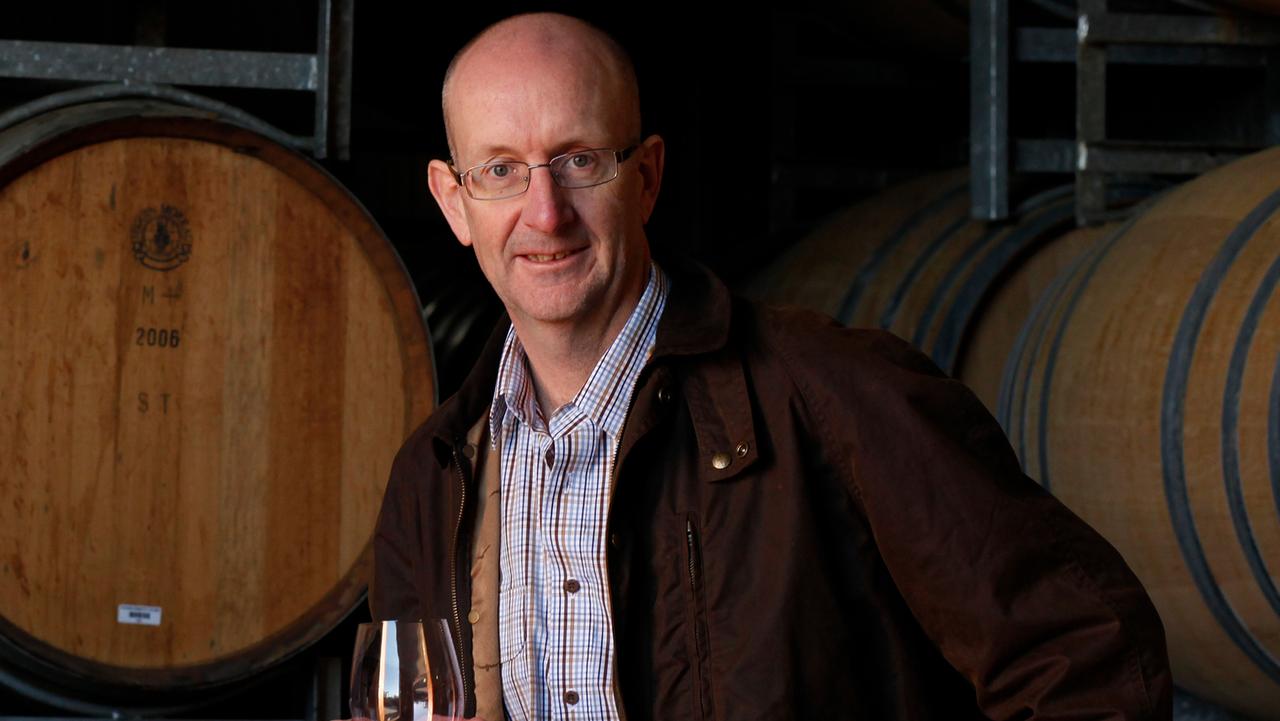
Australia’s biggest plastics maker, Qenos, called in voluntary administrators only a week after Prime Minister Anthony Albanese made reinvigorating Australia’s manufacturing sector a key plank of Labor’s re-election strategy. Its Melbourne and Sydney sites have been closed with the loss of hundreds of jobs.
Fast-charger maker Tritium also collapsed in April, owing creditors $260m, but was ultimately bought by India’s Exicom Tele-systems for $45m. Armaguard, the distributor of 90 per cent of notes and coins in Australia, warned that its business was unsustainable as costs rose and cash use declined. It eventually secured a $50m bailout from major banks and retailers.
Low-cost carrier Bonza pledged to “fight on” after being placed into voluntary administration following the repossession of its fleet of five Boeing 737 MAX 8s. But in July creditors voted to liquidate the company.

At the other end of the scale, Canva made some staff instant millionaires after finalising a bumper share sale worth $US2.4bn. The value of the visual communications tech darling soared to $US32bn following several secondary share sales. In November, Canva poached Zoom chief financial officer Kelly Steckelberg in preparation for a highly speculated IPO in the US.
At the top end of town, Richard Goyder was re-elected chair of oil and gas heavyweight Woodside Energy, despite 17 per cent of shares voted against him. Market Forces – one of several activist groups that targeted Woodside and its chairman on climate issues – noted that it was one of the highest no votes recorded by a top-tier Australian company in the past decade.
Star Entertainment executive chair David Foster left the group suddenly after a tumultuous week fronting the Bell II inquiry, and was replaced by director Anna Ward.
May
Reserve Bank governor Michele Bullock put rate rises back on the agenda in May and challenged Treasurer Jim Chalmers to hold the line and not add to the increasingly difficult task of bringing inflation back under control. The RBA did not lift rates at all in 2024.
ANZ announced it was being investigated by the corporate watchdog over its role in the $14bn sale of government bonds last year. ANZ says it has taken internal actions, including the suspension and termination of several employees in its Sydney dealing room due to inappropriate conduct, and CEO Shayne Elliott and other senior executives had their short-term incentives slashed. ASIC has indicated that it expects to form an internal view on the suspected contraventions and the potential for enforcement action by the first quarter of 2025.
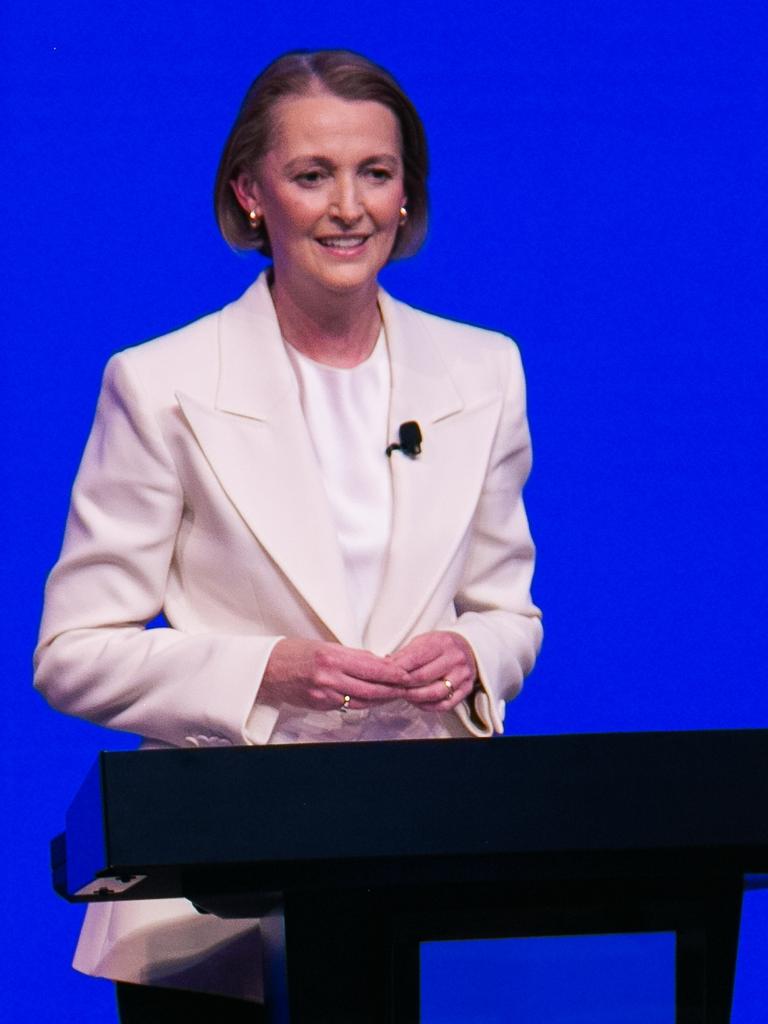
At Telstra, CEO Vicki Brady was busy stamping her mark on the telco. She said the company would axe up to 2800 jobs – about 9 per cent of its workforce – by 2025 as it raced to achieve ambitious cost savings as part of its much-hyped T25 strategy. Widely held Telstra shares are up 2 per cent this year.
Concerns about energy security in NSW were partly relieved when Origin Energy and the state government struck a deal to keep Eraring, the state’s largest coal power station, open for at least two more years and potentially until 2029.
Anglo American announced it would sell, spin off, slow or shutter everything in its portfolio outside its copper and iron ore interests in a sweeping restructure. In November, Peabody Energy secured Anglo’s Australian thermal coal mines with a $US3.8bn offer. BHP is expected to take another look at the slimmed-down Anglo American in 2025.
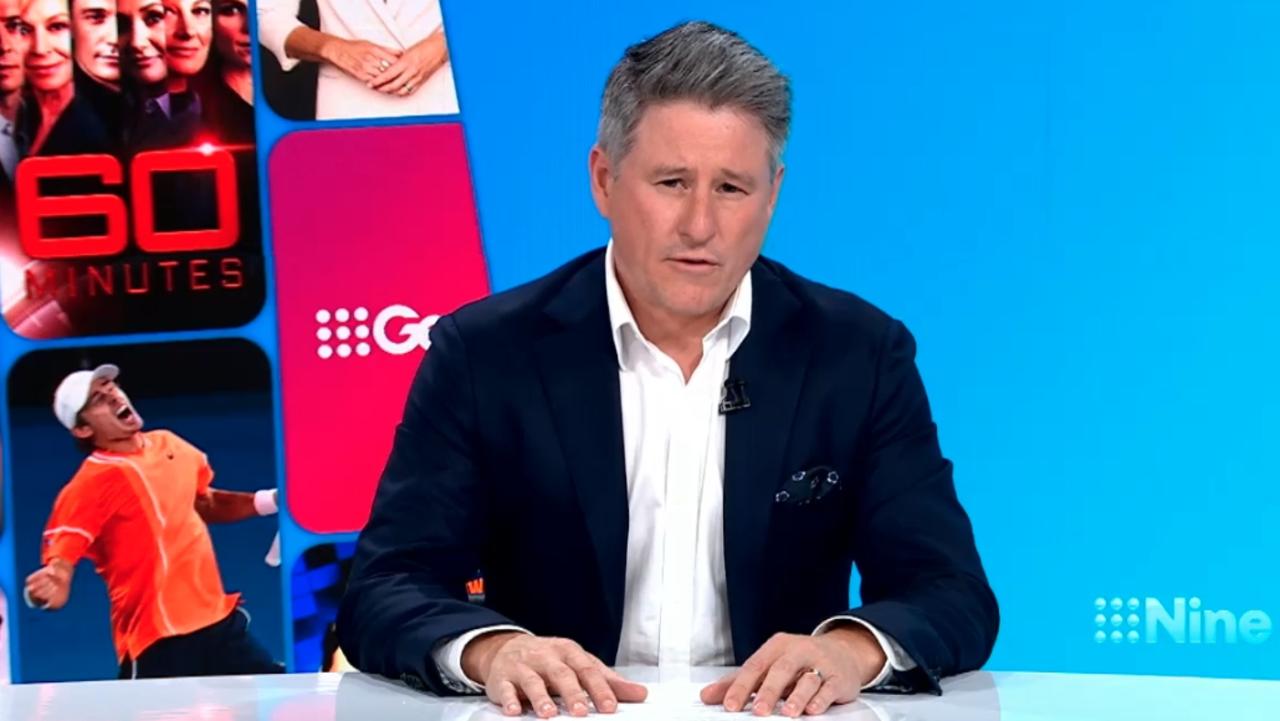
Meanwhile in the corridors of the Nine Network, the workplace culture was turning increasingly toxic. More than a dozen former and current TV journalists alleged verbal or physical misconduct by the company’s former long-serving news boss, Darren Wick.
Former federal treasurer Peter Costello resigned as Nine Entertainment’s chair in June after he was accused of assaulting The Australian’s journalist Liam Mendes at Canberra Airport. Nine CEO Mike Sneesby resigned in September.
It was a similar story at fashion retailer Country Road, owned by South Africa’s Woolworths Holdings. Police were called to one of the Melbourne stores after union activists plastered the doors and windows with signs saying “stop the cover-ups!”, “let women speak” and “listen to women” in the wake of an alleged sexual harassment and bullying scandal. An internal review identified systemic issues in complaint handling and workplace culture.
June
Qatar Airways confirmed its interest in acquiring a stake in Virgin Australia. The two carriers announced in October that Qatar would buy a 25 per cent stake, but the deal still needs Foreign Investment Review Board and Australian Competition & Consumer Commission approval.
In June, it emerged that Fortescue had launched secret raids on the homes and offices of directors of a green steel competitor, Element Zero, in a move Federal Court judge John Logan described as a potential “industrial-scale forensic debacle”. Fortescue alleged that Element Zero, founded by former Fortescue executives including Michael Masterman, misappropriated confidential information, which it used to develop an industrial pilot plant. In October, the Federal Court dismissed Element Zero’s application to set search orders aside. The main case returns to court in 2025.
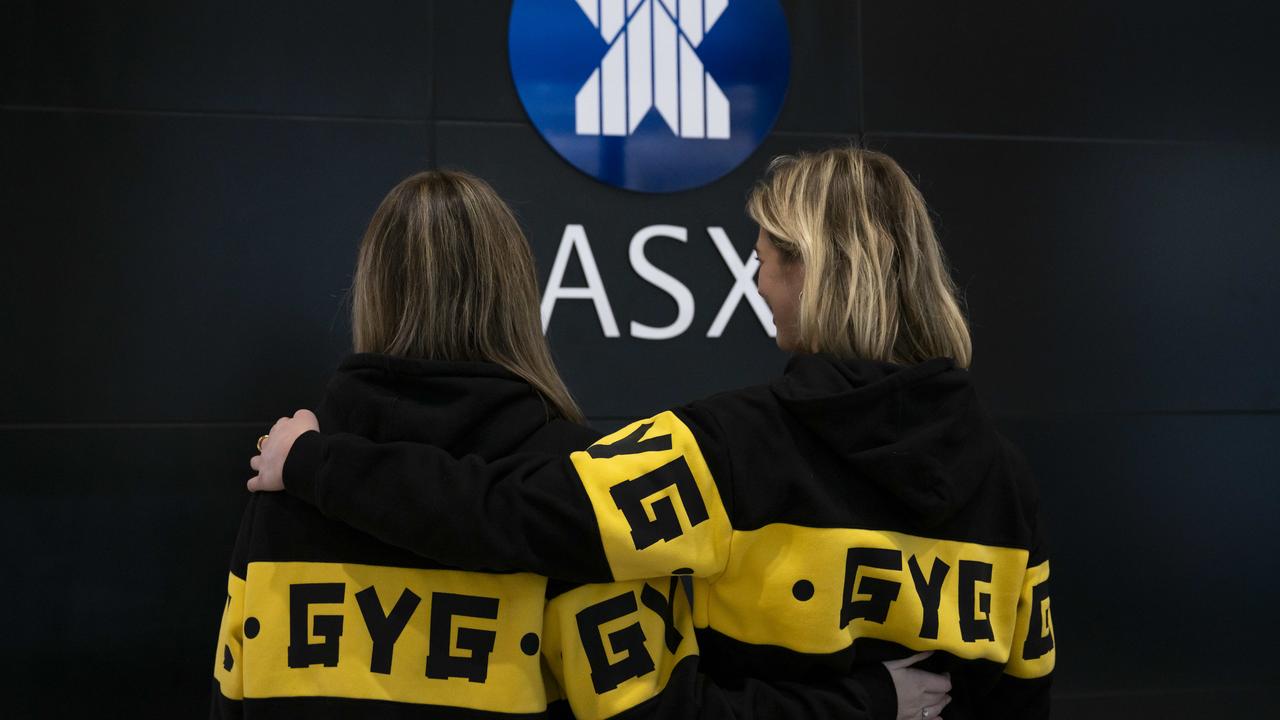
In the float of the year, Guzman y Gomez roared onto the ASX at $30 a share, a 36 per cent premium on the $22 issue price. The stock hit a peak of $45 in early December and was trading at $41.18 on Christmas Eve, valuing the Mexican fast food chain at $3.5bn.
Shareholders of industrials giant CSR overwhelmingly voted to accept a $4.32bn takeover by French building giant Saint-Gobain, and the stock ceased trading on the ASX.
Paladin Energy launched a $1.25bn takeover of Canada’s Fission Uranium, in a friendly all-scrip deal finalised in December.
A damning report found organisation chaos and cost-cutting at the Queensland government’s CS Energy were major contributors to an explosion in 2021 at the Callide C coal-fired power station that pushed up energy prices across the east coast.
July
After a 61-year run as a public company, Boral was delisted from the ASX after the Kerry Stokes-backed Seven Group mopped up the last of the building and construction materials company’s shares in a $2.3bn buyout.
Billionaires Melanie Perkins, Gina Rinehart, Frank Lowy, Mike Cannon-Brookes, Scott Farquhar and Andrew Forrest were named among the 60 most influential people of the past six decades as part of The Australian’s 60th birthday celebrations.
Australia’s sharemarket crossed the 8000-point mark for the first time as US inflation numbers reinforced the case for the Federal Reserve to start cutting interest rates. The benchmark S&P/ASX 200 traded as high as 8514.4 points in early December.
Fortescue launched a sweeping restructure with as many as 700 jobs going after Forrest abandoned the company’s goal of producing 15 million tonnes of green hydrogen a year by 2030.
And who can forget that Friday afternoon in July when a software update from CrowdStrike – a relatively obscure Texas-based cybersecurity firm – caused a massive global outage, knocking out big banks, supermarkets, hospitals and airlines as it rendered millions of Windows devices useless. In NSW alone, the damage bill is expected to top $200m, according to Business NSW.
Listed brewer and spirits manufacturer Mighty Craft was placed in administration less than five years after launching on the ASX as a vehicle to roll together beer and spirits brands and achieve economies of scale in the craft beer sector.
One of the biggest failures of the year was Rex Airlines, which went into administration with debts of more than $500m. Administrators EY immediately shut down the airline’s major city operations. The federal government intervened by guaranteeing regional flight bookings and providing an $80m loan to maintain essential services. Yet despite these measures, Rex’s future remains uncertain. ASIC filed court action against Rex in December for failing to disclose the company’s true financial position in 2023.
August
Battery maker Redflow became a victim of the increasingly tough renewable energy market. After failing to secure funding, it appointed voluntary administrators and ceased operations in October. By December 8, the latest official ASIC data showed more than 12,700 insolvencies had been notched up for the year, a record high.
In more encouraging news, Shant Kradjian, the founder of online electronics retailer digiDirect, rescued online bookseller Booktopia, which had fallen into administration a month earlier with debts exceeding $60m.
Metal Manufactures, an Australian subsidiary of US-based Blackfriars Corp, paid $170m to buy Fletcher Building’s troubled plumbing and bathroom supplies business Tradelink.
And Star Entertainment continued to grab headlines, with the NICC declaring the findings of the Bell II inquiry validated continuing concerns about its governance and culture. Adam Bell SC recommended the group be required to undertake further remediation work in order to keep its Sydney casino licence.
The survival of the casino group looked touch and go for a while, but in September it landed a new $200m debt facility from corporate lenders. When it released its long-overdue results later that month, Star said it wanted to slash up to 350 jobs and offload hotels and other assets in a bid to drive up to $100m in costs out of the business. In November, the NICC imposed a $15m fine on Star and extended the term of the government-appointed manager overseeing the Sydney casino until at least March 2025. The Queensland government has also deferred its decision on Star’s licence until March.
Over at rival Crown Resorts, Irish-born chief executive Ciaran Carruthers announced he would be heading for the exit at the end of the year.
September
Private equity behemoth Blackstone and its Canadian partner snapped up AirTrunk in a $24bn-plus deal – among the largest-ever acquisitions of an Australian company. Founder and CEO Robin Khuda and colleagues shared almost $3bn from the data centre company’s sale.
ASX remained on the nose with investors over its failed CHESS technology replacement project, forcing chairman Damian Roche to bow to pressure and hand the reins to former banker David Clarke.
Bruce Akhurst stepped down as Tabcorp chair and new CEO Gillon McLachlan ordered the wagering giant’s 1000-plus employees back to the office five days a week.
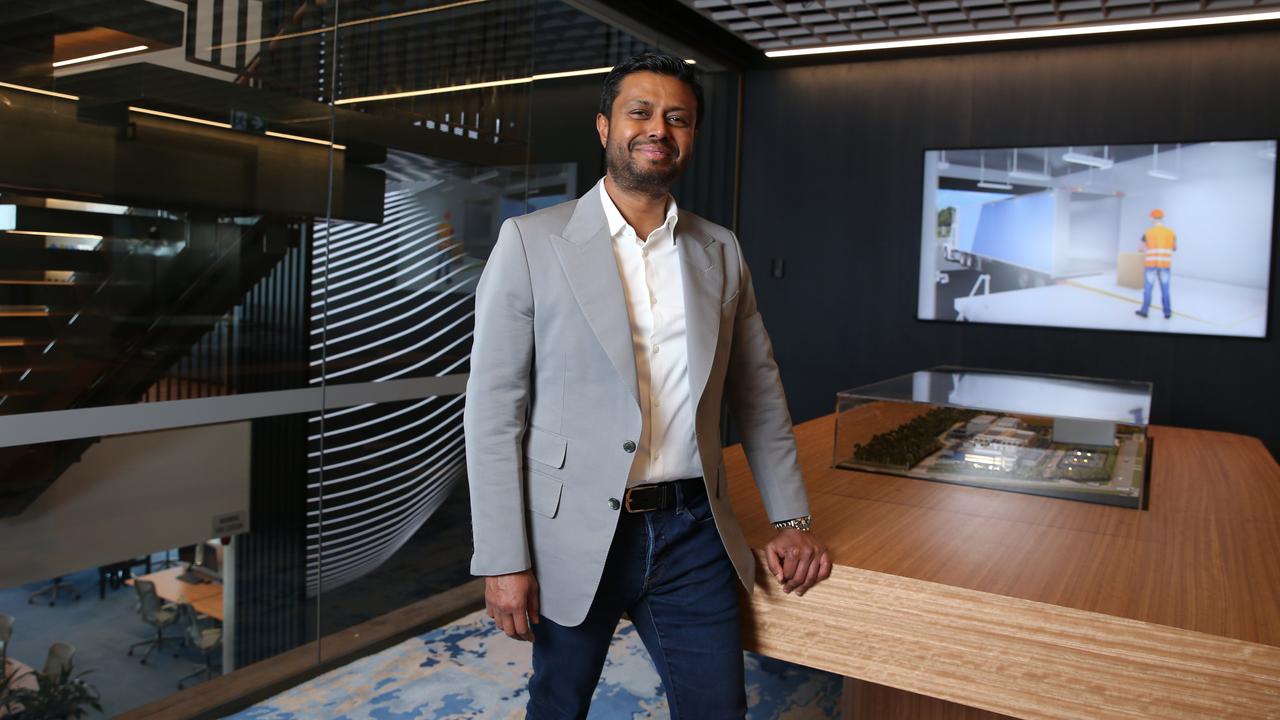
Webjet shareholders voted to split the company into two separate ASX-listed businesses. Webjet Group focuses on consumer-facing operations such as the Webject Online Travel Agency, while WEB Travel Group concentrates on business-to-business services, such as WebBeds.
British property portal Rightmove rejected Australian property advertising company REA Group’s fourth takeover pitch, valuing the target at $12.03bn, saying it undervalued its growth prospects.
And another one bites the dust. Endeavour announced CEO Steve Donohue would step down as head of the company, owner of Dan Murphy’s, BWS, and more than 350 pubs. Donohue continues to serve as CEO while Endeavour searches for his replacement.
October
Embattled apparel retailer Mosaic Brands said it would close more than 200 stores and shut five of its brands in a bid to avoid financial collapse. The company subsequently went into voluntary administration in October, owing $250m to 171 creditors. In December, receivers announced plans to close all 80 Katies stores, along with an additional 80 stores across the Millers, Rivers, and Noni B brands, resulting in nearly 500 job losses by mid-January. Administrators seeking buyers for the group’s remaining assets.
Richard White’s life as a relatively obscure billionaire tech geek came to an abrupt end when his legal stoush with former lover, Sydney beauty entrepreneur Linda Rogan became public.

The case centred on a bankruptcy notice issued by the WiseTech Global founder, seeking approximately $90,000 from Ms Rogan for luxury furniture expenses related to a Sydney apartment he had purchased for her use. The legal battle concluded with an out-of-court settlement in mid-October but not before White was engulfed in a full-blown scandal which became the spiciest business story of the year with allegations of other secret affairs and the misuse of company funds. WiseTech’s board initiated an independent inquiry which cleared Mr White of wrongdoing but he chose to step down as CEO in November to mitigate further reputational damage to the company. He continues to hold a $15bn stake in the tech giant, despite offloading $442m in shares since October. The stock suffered a rout in October but the shares up almost 65 per cent for the year.
Shares in Mineral Resources also came under pressure in October after the mining giant was forced into crisis talks with investors following shock revelations around its governance and the conduct of its talisman founder and managing director Chris Ellison. The board found Mr Ellison had used company resources for personal benefit and that he had failed to disclose revenue generated by overseas entities to tax authorities before the company was listed. MinRes imposed an $8.8m fine on him and mandated his departure as managing director within 18 months. In November ASIC said it had launched a formal probe into the miner and Mr Ellison.

Origin Energy decided to exit the proposed $207m Hunter Valley Hydrogen Hub, abandoned its ambitious plans to develop hydrogen and striking another blow to the Albanese government’s dreams for the energy source to help drive the transition to net zero.
Rio Tinto advanced its lithium ambitions with a $6.7bn tilt for Arcadium Lithium. Arcadium’s shareholders overwhelmingly approved the deal in December and it is expected to close by mid-2025, pending regulatory approvals.
Qantas finally got to rule a line under one of the most shameful episodes of its 104-year history, after the federal court accepted a $120m settlement with the competition watchdog as a “necessary sting” for selling tickets on already cancelled flights from May 2021 to August 2023.
Also in the federal court, former Forum Group boss Bill Papas and business partner Vincenzo Tesoriero were found to have concocted an “audacious fraud” using fake loans. They funded lavish lifestyles and multiple property purchases by borrowing millions of dollars from a trio of banks, including Westpac, on the basis of more than $500m in falsified equipment leases.
November
Don Meij announced plans to step down from Domino’s Pizza after 22 years as CEO, and said he would hand the baton to Mark van Dyck, an executive with the Compass Group. The pizza chain also issued a trading update that showed sales growth below expectations. The stock has plunged almost 50 per cent this year.
The Australian Competition & Consumer Commission approved the proposed merger between Sigma Healthcare and Chemist Warehouse, valued at $5.8bn. The deal, set for completion in March, will deliver a $15bn share bonanza to the Chemist Warehouse founders.
Commonwealth Bank shares shrugged off “sell” recommendations from stockbroking analysts to hit $150 for the first time. The shares, which rallied almost 40 per cent this year, hit a peak of $161.37 in mid-December.
Resolute Mining chief executive Terry Holohan and two other employees were detained by a military junta in the West African nation of Mali over alleged back taxes. To resolve the dispute and secure the release of the executives, Resolute agreed to pay $US160m to the Malian government.
ASIC took legal action against the Wayne Swan-led super giant Cbus over alleged mishandling of $20m in insurance money owed to grieving families and people with disabilities. CEO Kristian Fok blamed the delays on Link Administration – owned by Japanese giant Mitsubishi UFJ Financial Group – which handled the outsourced claims. If found guilty, all Cbus members might have to contribute to the penalties.
The corporate regulator also put banks on notice over financial hardship, launching court action against National Australia Bank alleging the bank took years responding to borrowers facing crisis amid the high cost of living. The Australian Securities & Investments Commission alleged NAB failed to respond to at least 345 customers seeking assistance from the lender over several years, breaching the bank’s requirements to fairly deal with customers in strife.
Melbourne billionaire Heloise Pratt took the thermonuclear option of lodging action in the Supreme Court against her estranged husband, Alex Waislitz, for alleged historical misconduct in the operations of their jointly owned business, Thorney Investments. Documents filed in the Victorian Supreme Court name Pratt and her Pratt Family Trust as plaintiffs in a case against Waislitz and numerous related parties, including family members.
December
WiseTech co-founder and director Maree Isaacs surprised the market with news she had sold her $1.3bn stake in the troubled logistics software titan to Richard White.
Northern Star said it planned to build Australia’s next big gold mine after striking a $5bn deal to acquire De Grey Mining and its Hemi project in WA.
The price of bitcoin punched through the $US100,000 barrier for the first time and traded as high as $US108,135 on the back of expectations that US president-elect Donald Trump would turbocharge the gains with favourable regulations.
The marquee float of the year, the DigiCo Infrastructure REIT launched by David Di Pilla’s HMC Capital, was given a harsh reception by investors, with the much-hyped stock tumbling 10 per cent on their ASX debut. The stock, issued for $5, was trading at $4.56 on Christmas Eve, after dipping as low as $4.02 in mid-December.
ANZ shareholders delivered a sharp rebuke to its board at a marathon five-hour annual meeting with 38 per cent of shareholders voting against the remuneration report, handing the bank a ‘‘first strike’’. CEO Shayne Elliott attempted to mollify investors by surrendering his $3.2m bonus.
On the Friday before Christmas, brokers were scrambling to secure billions of dollars in funding to cover millions of trades that failed to settle, after the Australian Securities Exchange revealed a major outage of its key technology platform CHESS.
British sports streaming heavyweight DAZN was revealed as the new owner of TV major Foxtel in a blockbuster deal set to shake up Australia’s media and sport landscape. The $3.4bn deal marks the end of News Corp’s long-running ownership of Foxtel, after it launched the pay-television service three decades ago and built it into a sport and streaming powerhouse with almost five million paying subscribers. Telstra has offloaded its 35 per cent stake as part of the sale. News Corp and Telstra will emerge with a combined 9 per cent stake in DAZN as part of the acquisition.
EML Payments sacked chief executive Ron Hynes after six months in the position, as its board says alternate leadership is required to execute the company’s strategy.
This article first appeared in The Australian.
Related Topics
UNLOCK INSIGHTS
Discover the untold stories of emerging ASX stocks.
Daily news and expert analysis, it's free to subscribe.
By proceeding, you confirm you understand that we handle personal information in accordance with our Privacy Policy.








